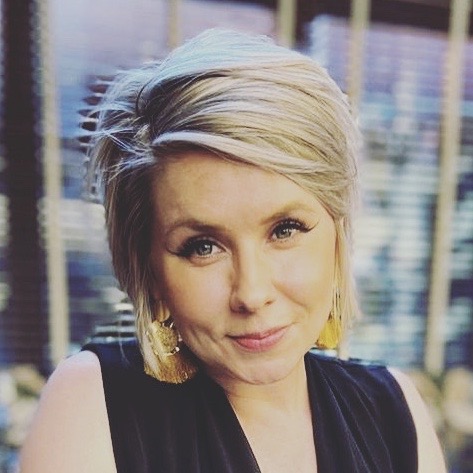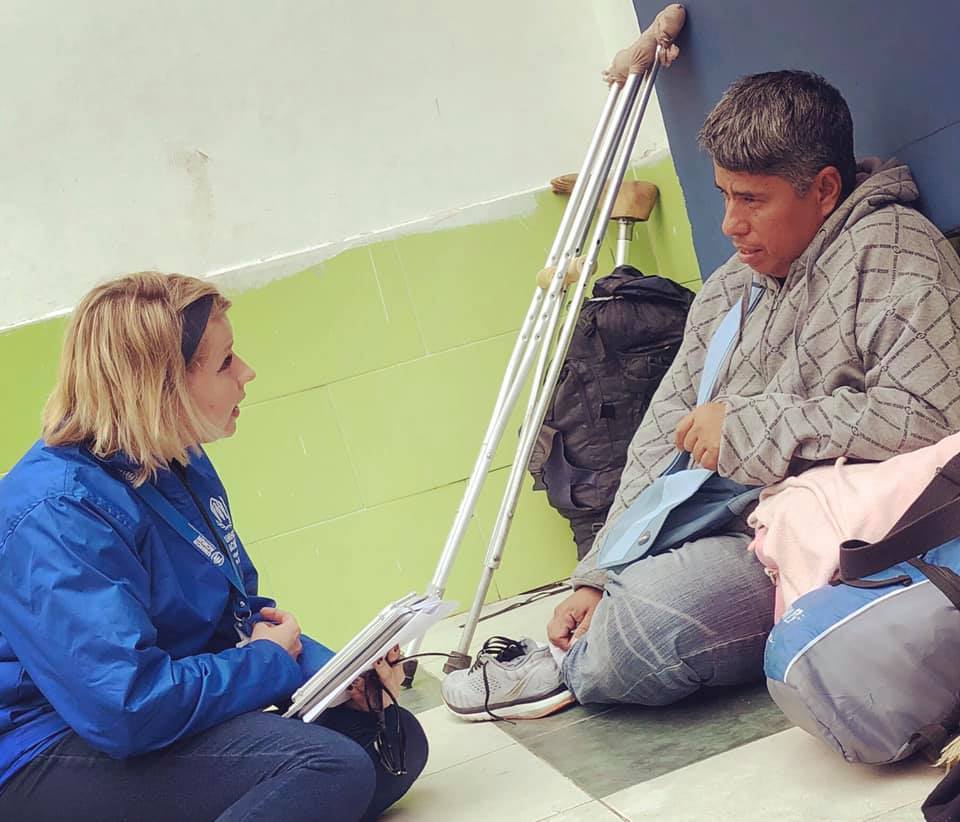“Stories from the Field” is an interview series providing insight into the daily lives of some of our Northern European colleagues, working for the organization all over the world.
Why did you choose to work for UNHCR?
“Wanting to work for refugees goes back to my university days. When I was doing my Master’s Degree, it became clear to me that I wanted to work with human rights. However, at that time, I didn’t know yet what type of human rights work I wanted to do. During my master’s studies, I took a course in international refugee law, and the professor had previously worked for UNHCR. On the very last day of the course, she invited us to watch a documentary that was very much focused on the work of UNHCR and the stories of refugees, and that turned out to be a light-bulb moment for me. Seeing the desperation people felt after they were forced to leave everything they knew and loved, made me realise that I wanted to do everything I could to serve these people. I went on to do my PhD in International Refugee Law and joined UNHCR to use my theoretical knowledge to serve refugees in practice.”
How do you describe your work?
“I am the head of the refugee status determination (RSD) unit in Syria, which determines whether the asylum-seekers can be granted refugee status and is therefore part of the first-line response. When an asylum-seeker is asking for asylum, the unit first does an in-depth interview, then does a legal analysis of the case, and based on this determines whether the asylum-seeker is considered a refugee under international, regional or national law. RSD is often a vital process in helping refugees realize their rights under international law. If an asylum-seeker is granted refugee status, it is often life-changing for them.”

Tuuli Karjala in UNHCR

What are some of the best experiences you have had, working for UNHCR?
“Every day brings something amazing in my line of work, and every day I feel that I am contributing to something meaningful. But there is one particular moment that stands out.
When I was working for UNHCR in Eritrea, it was my task to organize an event to mark the 16 Days of Activism Against Gender-Based Violence (an annual international campaign that challenges violence against women and girls). As part of the campaign, we decided to set up an event in the refugee camp. We wanted to empower the girls in the camp and decided to do so by playing sports – particularly volleyball, which the girls really wanted to play. Because the camp’s population came from a culture that was quite conservative, the girls felt comfortable to play only if we joined them. So, we set up a volleyball game between 3-4 UNHCR staff members and few school-age refugee girls in the middle of the camp. At first, the refugee community gathered around and were watching us quietly, but as time progressed, the audience grew larger, and starting to encourage and cheer for the girls. In the end, more girls and women of the camp felt encouraged to join us, and we had a big group of refugee girls and women playing with us with the whole refugee community of people from different backgrounds watching and cheering the girls and women on. It was really nice to witness how the whole community came together with a strong feeling of unity. It was amazing to see how empowered the girls and women felt.
Overall, working with UNHCR is very rewarding but can be challenging at the same time. At times, it’s the sheer magnitude of the emergency response that makes our job challenging. When I was in Ecuador, responding to the Venezuela emergency, we went to the Colombia-Ecuador border to identify the most vulnerable people. Every day, thousands of people arrived – families with small children, grandparents and people with disabilities – who crossed the border after they had been walking for days. It was quite overwhelming. At the same time, it was incredibly rewarding to be a part of that response, being able to provide them with assistance, shelters, showers and other basic needs. It was emotional to see big families, who were exhausted from walking for days, getting a moment of rest. To see the relief they felt, was really special.”
Tuuli Karjala is head of the refugee status determination unit in Syria. She has worked five years for UNHCR. Private photo.

What are some of the worst experiences you have had, working for UNHCR?
“It’s quite interesting, because both my worst and best experiences have taken place in refugee camps.
While I was working in a refugee camp in Eritrea, we had an influx of refugees because of the outbreak of the war in Yemen. When we came to the camp, I saw groups of women with very young children, and even though the children were wrapped in blankets and clothing, I could see that something was not right. I went over to one of the women and asked if I could see her baby. When the woman removed the blankets, I could see that the child was desperately malnourished. More and more women with small children gathered around us, and I could see that there was a big problem with malnourished children. It was heart-breaking to see the desperation and distress of these mothers. Thankfully, we were able to secure an emergency supply of food products specifically for malnourished children, and we were able to help them. The next time I visited the camp, the children were already in much better shape.
I hear many gripping stories of persecution in my job that will stay with me forever, but what helps me carry on and continue this type of work are the moments of hope and unity, and when I see the results of the work we are doing. It’s very rewarding to help people who have lost everything.”
“Overall, working with UNHCR is very rewarding but can be challenging at the same time,” says Tuuli Karjala. Private photo.

“Every day brings something amazing in my line of work, and every day I feel that I am contributing to something meaningful,” Tuuli Karjala explains. Private photo.
Share on Facebook Share on Twitter